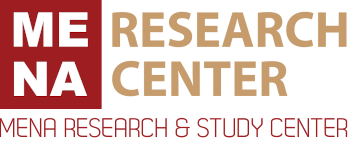At least the US government appears to be taking steps to cut off the money supply to the terrorist organization Hamas. The US Treasury Department is working to dismantle the network, said US Deputy Treasury Secretary Wally Adeyemo. High-ranking employees of his agency are traveling through the region on this matter. However, their fight is also arduous and complicated. Experts therefore do not expect a quick, decisive victory. “You can’t just flip a switch and Hamas is bankrupt,” says a former senior US government official who was active in the fight against terrorism on both the National Security Council and the Treasury Department. “A campaign is needed that will require a lot of time, great effort and also political and diplomatic capital.” For years, Hamas was treated like a quasi-legitimate organization that ran a government and received international funding. At the same time, it can rely on its main state sponsor Iran and its experienced terrorist financing networks.
Not all authorities or governments whose cooperation is important are likely to take immediate and comprehensive action against Hamas. When Turkish President Erdoğan announces that Hamas is not a terrorist organization, that is an important problem. The United States has already imposed new sanctions following the major terrorist attack by Hamas on October 7. These target some of the sources from which the organization raises money for terrorist attacks: assets in a secret investment portfolio and people who help Hamas-linked companies evade sanctions.
They also target the Iranian Revolutionary Guard, which supports Hamas with money, weapons and training. American and Israeli officials estimate that the Iranian regime pays Hamas $70 million to $100 million a year. It can also rely on networks of other allies, such as intermediaries who have good contacts with both the Lebanese Hezbollah and Hamas.
For example, there is an “Oil for Terror” network: Iranian oil is sold – with the help of Russian companies, among other things – to the Assad regime in Syria, which is subject to Western sanctions, which in turn passes on profits to the Iranian Revolutionary Guards, who pass on this money then to Hezbollah and Hamas. The Iranian regime’s help is likely to become increasingly important in the near future, because with the loss of control and possibly rule over the Gaza Strip, a rich source of money will dry up: taxes collected by large companies, fees for car registration or birth certificates , customs duties for – including smuggled – goods.
In addition, Hamas was able to divert funds from the aid that came to the Gaza Strip via international organizations such as the UN or the EU or foreign donors. Around $1.3 billion has flowed from the Gulf emirate of Qatar alone – in coordination with the Israeli government – since 2012. The Washington Institute for Near East Policy told the US House of Representatives Committee on Terrorist Financing at the end of October that until this war, Hamas had collected around $300 million to $400 million a year from sources related to its rule in Gaza. It would also be a serious financial blow if this ended after the war.
In addition to the payments from Tehran, Hamas would then have donations collected from charities, some of which are based in Europe. In addition, over the years, Hamas has built up an economic empire worth hundreds of millions of dollars from companies, investments or shell companies. According to several experts, it is a cross-border network with companies in Sudan, Turkey, Algeria, Saudi Arabia and the United Arab Emirates. Hamas cadres in branches such as those in Qatar or Beirut can therefore access such resources. The government in Washington estimated in 2022 that Hamas had assets worth more than $500 million. In addition to the highest management body, the Shura Council, this is also monitored by its own investment committee. Experts believe a lot is known about these networks. The Israeli authorities would certainly have carried out a large part of this work continuously. So we know enough to be able to start imposing further sanctions. But more needs to be done to deepen our understanding of Hamas financing. Hamas will adapt, and there will be a lot of work in this regard.
In Germany, too, employees of the security authorities see a major challenge facing the West when it comes to effectively disrupting the flow of money. Because this can be distributed over many small veins. “Hamas and its supporters use normal bank payment transactions; individuals can carry small amounts of cash, but in large numbers they make a difference,” says an experienced terrorism expert. There is also the so-called hawala system, an informal payment procedure that involves cash deposits and withdrawals to sources. And cryptocurrency is also part of the Hamas financial world. Israeli authorities have ordered the closure of dozens of cryptocurrency accounts following the October 7 attack.
Nor will it be possible to stop every single donation or every single dollar that flows from Iran to Hamas. “But everything must be done to make it harder, more expensive and riskier for Hamas to raise and move money, and also make it more difficult for it to act as a legitimate movement.” American foreign policy and the relevant departments in the US Treasury Department might have to recalibrate their priorities. Their resources had recently been focused on other areas such as sanctions on Russia and the major conflict with China. Now more attention should be drawn to Hamas and its sponsors. “There has to be political will for this,” say experts.
All publishing rights and copyrights reserved to MENA Research Center.



























